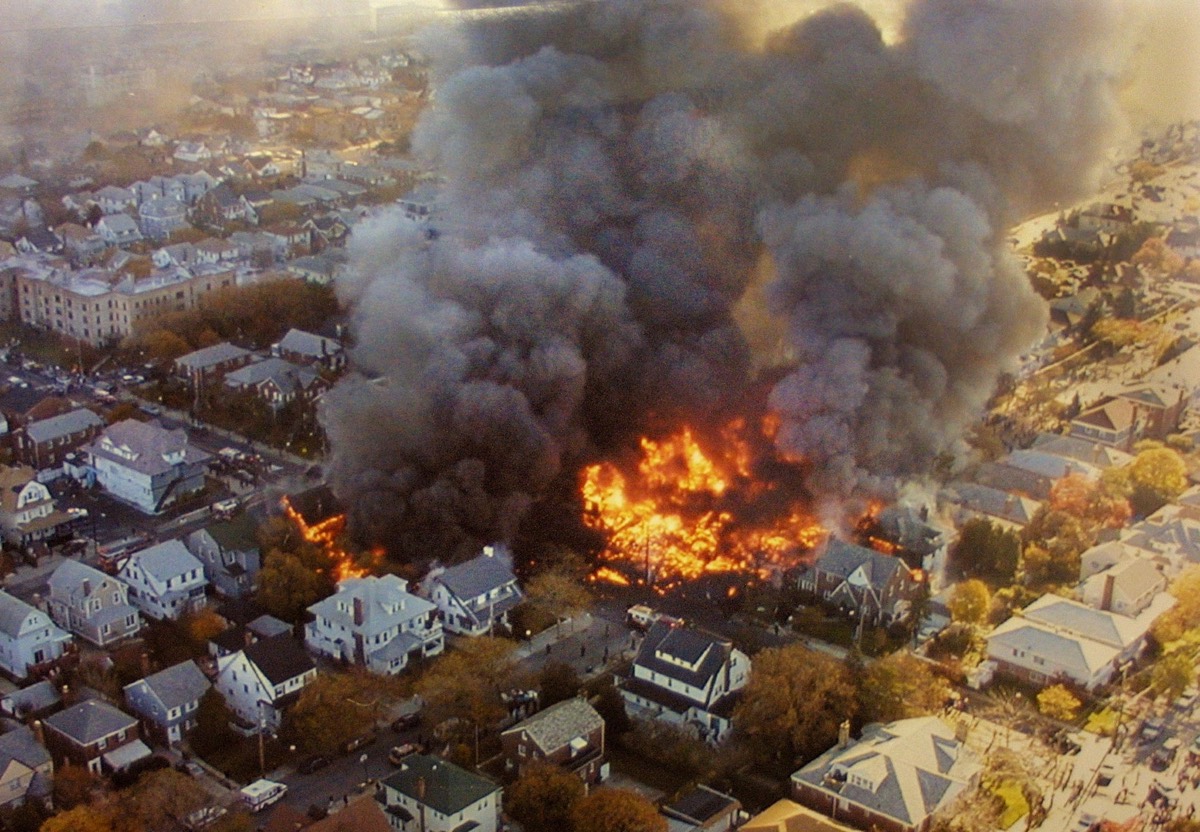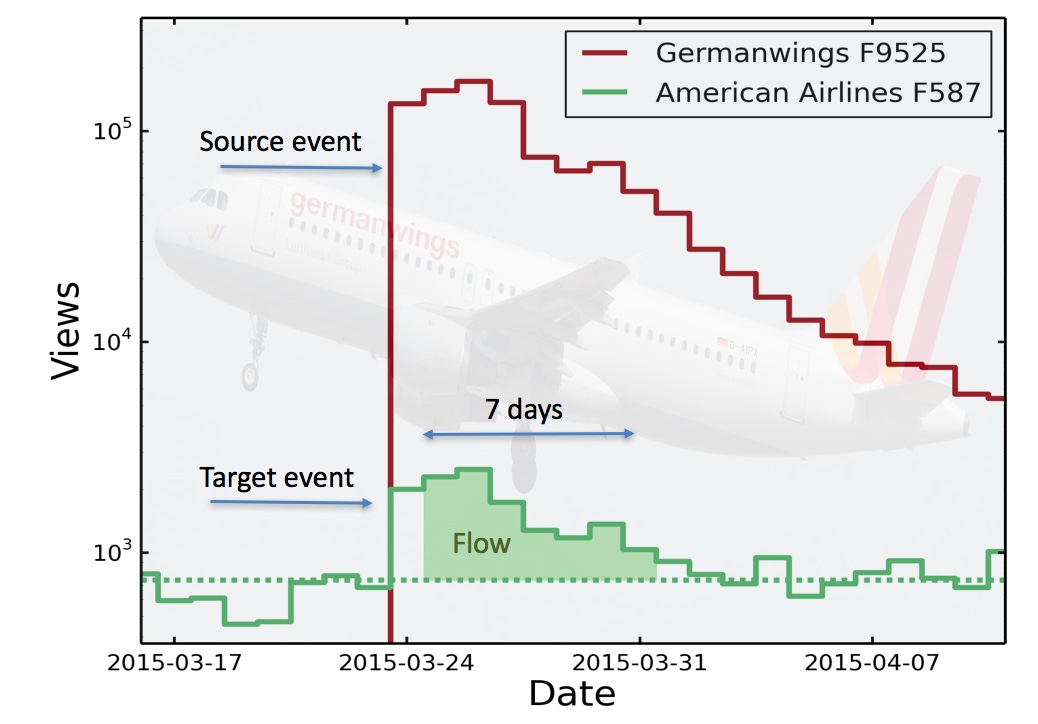How Long Do We Remember Major Plane Crashes?

American Airlines Flight 587. Germanwings Flight 9525. Air France Flight 447. How long will these flights, all of which crashed and killed everyone aboard, be remembered?
If history is any guide, about 45 years.
A new study finds that collective memory of plane crashes lasts about 45 years, at least based on Wikipedia lookups of these disasters. Wikipedia makes it possible to peek into people's collective memories, said study leader Taha Yasseri, a computational social scientist at the University of Oxford. And it turns out that plane crashes trigger memories of other plane crashes — even distant events that don't have anything to do with one another. That's the case with, for example, the 2015 Germanwings crash, in which a suicidal pilot flew an Airbus into a mountainside, and the 2001 American Airlines crash in the Rockaway neighborhood of New York City, which was caused by co-pilot error in response to turbulence from another jet. [Facts About the Mysterious Disappearance of Malaysian Flight 370]
"When the Germanwings crash happened, the viewership of the American Airlines article increased threefold," Yasseri told Live Science. The increased interest occurred even though there was no hyperlink from the Germanwings Wikipedia article to the American Airlines disaster article.
Externalizing memory
Yasseri became interested in studying the public's memories of plane crashes after the Germanwings flight, when he noticed the sudden surge in interest in the 2001 American Airlines disaster. Yasseri's work focuses on Wikipedia and on other internet search behavior as a way of peering into what people are thinking. Data on Wikipedia page views allows researchers to quantify thoughts and memories that simply weren't quantifiable before.
The digital view into people's psyches has revealed some contradictory truths, Yasseri said. On one hand, people have short attention spans — their attention to news events tends to drop off after about a week or so. On the other hand, sites like Wikipedia archive details about past events; before the internet age, people might have had to dig through old newspaper clippings to recall these events. [10 Ways to Keep Your Mind Sharp]
"We might have a shortened attention span due to social media and digital technology, but the same technology gives us the opportunity to memorialize or remember things or to educate ourselves about events in the past," Yasseri said.
Sign up for the Live Science daily newsletter now
Get the world’s most fascinating discoveries delivered straight to your inbox.
Memory connections
In the new research, published today (April 5) in the journal Science Advances, Yasseri and his colleagues focused on aircraft accidents listed in English-language Wikipedia pages between 2008 and 2016. Then, they examined how attention on these accidents flowed into attention on older accidents.

They found some intriguing patterns. First, some old crashes are more memorable than others, Yasseri said. When an airline accident happens, people are likely to go down a Wikipedia rabbit hole that leads to the planes that crashed on 9/11.
"People go back and read about the 9/11 flights again and again," Yasseri said.
Perhaps not surprisingly, people remember recent disasters more readily than older ones, the researchers found. After about 45 years, memories of a crash are rarely triggered, at least as far as Wikipedia is concerned. Accidents rarely prompt searches for past disasters more than 45 years prior.
Death toll matters, too. People tend to gravitate toward airline disasters with the largest death tolls when going down memory lane, the researchers found. Perhaps surprisingly, though, past accidents with zero fatalities tend to get more attention than past accidents with a handful of fatalities. That is probably because zero-fatality accidents likely only get a Wikipedia page if something bizarre happened, Yasseri and his colleagues wrote, citing the example of a midair collision in 1940 over Brocklesby, Australia, in which a pilot was able to safely land two locked-together Avro Ansons.
Overall, memories triggered by a very recent plane crash fill a significant amount of people's brain space. In the first week after a new airline accident, the disaster's Wikipedia page gets 7.4 million views, on average, the researchers found. The spike in views of old airline crashes triggered by the new accident is 10.5 million views, on average.
Similar results would probably be seen with other types of disasters, like earthquakes, Yasseri said. The memory-triggering effect is probably present for positive events, too, he said — current sporting events do prompt searches of past sporting events, for example.
Wikipedia views have been shown to correlate with Google searches, Yasseri said, so the giant online encyclopedia is a good proxy for internet users' behavior. But he'd like to take the research further.
"I would like to have data from social media, from news outlets and more traditional media as well," Yasseri said.
Original article on Live Science.

Stephanie Pappas is a contributing writer for Live Science, covering topics ranging from geoscience to archaeology to the human brain and behavior. She was previously a senior writer for Live Science but is now a freelancer based in Denver, Colorado, and regularly contributes to Scientific American and The Monitor, the monthly magazine of the American Psychological Association. Stephanie received a bachelor's degree in psychology from the University of South Carolina and a graduate certificate in science communication from the University of California, Santa Cruz.










